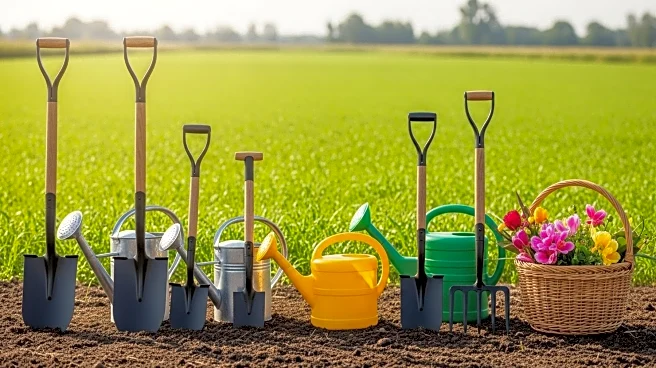What's Happening?
The feminization of agriculture refers to the growing involvement of women in farming activities, driven by socio-economic transformations and the migration of men into non-agricultural sectors. This shift has led to women playing a crucial role in ensuring food security, sustaining rural livelihoods, and contributing significantly to the agricultural economy. The trend is characterized by high female labor participation, a rise in female-headed farm households, and improved decision-making power among women in agricultural settings. Factors contributing to this phenomenon include male outmigration, economic transitions, conflict and displacement, policy gaps, and technological transformations.
Why It's Important?
The feminization of agriculture has significant implications for economic development, gender equality, and food security. Women's increased participation in agriculture enhances family incomes and strengthens rural economies, although persistent wage gaps and limited access to credit hinder their full potential. By taking on agricultural responsibilities, women gain social recognition and improved status, yet patriarchal structures often limit their empowerment. Women are key actors in ensuring household food security, but their restricted access to land ownership and modern technologies compromises productivity. Additionally, women's traditional knowledge supports sustainable farming practices, although their exclusion from training limits the adoption of eco-friendly techniques.
What's Next?
Policy responses to the feminization of agriculture are crucial to address the challenges faced by women in this sector. These include restricted land and property rights, limited financial access, technological disparities, health and safety concerns, time poverty, and social and cultural barriers. Effective policies could enhance women's access to land, credit, and modern agricultural technologies, thereby improving their productivity and empowerment. Furthermore, addressing these issues could lead to more sustainable agricultural practices and improved food security.
Beyond the Headlines
The feminization of agriculture also highlights broader societal shifts, including changing gender roles and the impact of economic transitions on rural communities. As women increasingly take on leadership roles in agriculture, there is potential for greater gender equality and empowerment. However, this requires addressing systemic barriers and ensuring that women have equal access to resources and opportunities. The trend also underscores the need for inclusive policies that recognize and support the contributions of women in agriculture.









